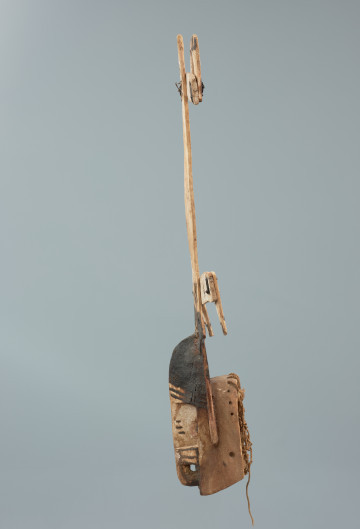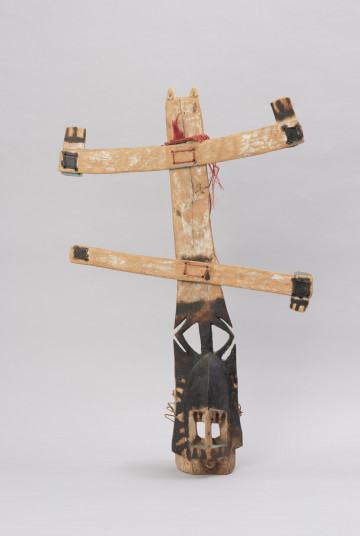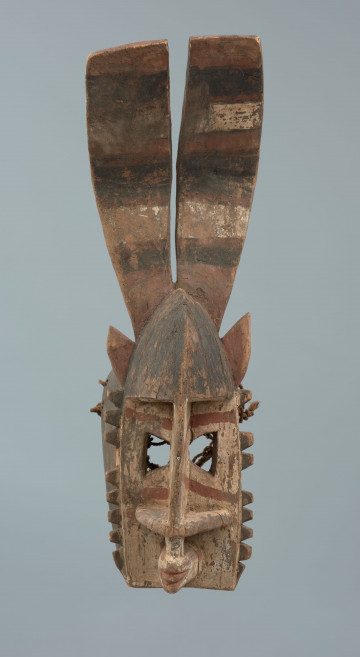
Kanaga mask
między 1951 — 2000
National Museum in Szczecin
Part of the collection: Collection of Dogonian art
In the Sigi-so language, the kanaga mask is called awa donu pini, which translates as young mask of wood. Like other Dogon masks, it dances during the Dama funeral festivals, whose purpose is to carry the souls of the dead into the ranks of the ancestors. It is the most popular Dogon mask. Its image can be found on most tourist brochures advertising the region inhabited by the Dogon and the entire Republic of Mali. It is also popular among the Awa association members, and appears in the most significant number during the Dama funeral festivals. When Marcel Griaule, a French anthropologist, observed the Dama ritual in 1935, 74 masks participated, of which as many as 29 were kanagi. The masks hold stallions in their hands, which they brandish to the rhythm of the music. They dance in a line behind one another. The choreography is complicated, consisting of slower and more dynamic sequences. At the climax, the dancers bend backwards in a circular motion and then lean forward in a fluid and sweeping way, imitating hitting the ground with the wooden part of the mask. First, the first mask in the line performs this arrangement, then the second one joins it at an equal pace, followed by the third one and so on. All of them together create an extraordinary rhythmic show. The dancers only act out the movement of hitting the ground with the mask's final, but it happens that the upper edges of kanagi are often damaged. All such broken fragments are meticulously collected while the masks are still performing. The damage is repaired before the next Dama festival.
Ewa Prądzyńska
Author / creator
Dimensions
cały obiekt: height: 96 cm, width: 53,8 cm
Object type
sculpture, mask
Creation time / dating
Creation / finding place
Identification number
Location / status

między 1951 — 2000
National Museum in Szczecin

między 1951 — 1984
National Museum in Szczecin

między 1951 — 2000
National Museum in Szczecin
DISCOVER this TOPIC
Castle Museum in Łańcut
DISCOVER this PATH
Educational path